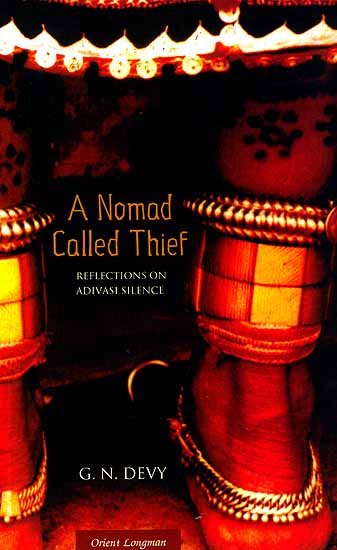Tip: more posts with information on India’s forest legislation are found on this website (in reverse chronological order): Forest Rights Act (FRA) | Illegal mining >>

Reflections on Adivasi Silence and Voice by Ganesh [G.N.] Devy | Publications >>
NESPON – North Eastern Society for Preservation of Nature and Wildlife | Our Partners & Supporters >>
Location: 200 forest villages including the 5 forest sub-divisions of Darjeeling and Jalpaiguri districts, West Bengal.
Project Holder: Mr. Soumitra Ghosh
Objectives: # Community mobilized on child right issues in forests and such integrated with the larger movement goal. # To create spaces for children to raise their issues/concerns/voices and enable it to integrate with the larger voice of adults. # Facilitation of Child and Youth groups in forest areas through which children and youth will raise their issues, integrate them with the larger forest movement. # Comprehensive Alliance building between various peoples movements in North Bengal. Collective action building in forest areas, adjacent tea gardens and nearby revenue villages.
Reference Group: Forest semi-nomadic tribal communities – their families and children (Mech, Rava, Garo and Dhimal in the Terai region and Lepcha, Limbu in the Hills). […]
Project brief: NESPON, a Siliguri based voluntary organization, works among the forest communities of North Bengal, since 1992, with the objectives of conserving the forests and other natural resources of the area and supporting as well as protecting the livelihood of people dependant on this resource base. […]
NESPON believes that conservation of forests and other natural resources in North Bengal and elsewhere demands that the role of people as manager and governors of these resources be legally recognized, the community rights over these resources be ensured and the livelihoods of people be adequately protected. NESPON has a wide mass base and the experience of working in the area of Forest Rights. It has a strong committed team with political understanding of the area and the prevailing issues and their linkages with the larger issues.
Source: NESPON – North Eastern Society for Preservation of Nature and Wildlife
Address : http://www.cry.org/projects/westbengalproject10.html
Date Visited: Wed Apr 25 2012 15:16:02 GMT+0200 (CEST)
Find up-to-date information provided by, for and about Indian authors, researchers, officials, and educators
List of web portals covered by the present Custom search engine
Ashoka Trust for Research in Ecology and the Environment (ATREE) – www.atree.org
Freedom United – www.freedomunited.org
Government of India (all websites ending on “.gov.in”)
Kalpavriksh Environmental Action Group – https://kalpavriksh.org
Shodhganga (a reservoir of Indian theses) – https://shodhganga.inflibnet.ac.in
Survival International – www.survivalinternational.org
UCLA Digital Library – https://digital.library.ucla.edu
Unesco – https://en.unesco.org
Unesco digital library – https://unesdoc.unesco.org
Unicef – www.unicef.org
United Nations – www.un.org/en
Video Volunteers – www.videovolunteers.org
WorldCat (“the world’s largest library catalog, helping you find library materials online”) – https://worldcat.org
To search Indian periodicals, magazines, web portals and other sources safely, click here. To find publishing details for Shodhganga’s PhD search results, click here >>
Search tips
Combine the name of any particular state, language or region with that of any tribal (Adivasi) community.
Add keywords of special interest (music, poetry, dance just as health, sacred grove and biodiversity); learn about the rights of Scheduled Tribes such as the “Forest Rights Act” (FRA); and the United Nations “Declaration on the Rights of Indigenous Peoples”, “Universal Declaration of Human Rights”, “women’s rights”, or “children’s right to education”.
Ask a question that includes “tribal” or “Adivasi”, for instance: “Adivasi way of life better?” (or “tribal way of life worse?”)
Specify any particular issue or news item (biodiversity, bonded labour and human trafficking, climate change, ecology, economic development, ethnobotany, ethnomedicine, global warming, hunter-gatherers in a particular region or state, prevention of rural poverty, water access).
For official figures include “scheduled tribe ST” along with a union state or region: e.g. “Chhattisgarh ST community”, “Himalayan tribe”, “Scheduled tribe Tamil Nadu census”, “ST Kerala census”, “Particularly Vulnerable Tribal Group Jharkhand”, “PVTG Rajasthan”, “Adivasi ST Kerala”, “Adibasi ST West Bengal” etc.
In case the Google Custom Search window is not displayed here try the following: (1) toggle between “Reader” and regular viewing; (2) in your browser’s Security settings select “Enable JavaScript” | More tips >>
Note: hyperlinks and quotes are meant for fact-checking and information purposes only | Disclaimer >>
Some clarifications on caste-related issues by reputed scholars >>
See also
Adverse inclusion | Casteism | Rural poverty
Childhood | Tribal Children’s Right to Education in India
Demographic Status of Scheduled Tribe Population of India (Census figures 2011)
Fact checking | Figures, census and other statistics
Human Rights Commission (posts) | www.nhrc.nic.in (Government of India)
Search tips | Names of tribal communities, regions and states of India
“What is the Forest Rights Act about?” – Campaign for Survival and Dignity
“Who are Scheduled Tribes?” – Government of India (National Commission for Scheduled Tribes, NCST)